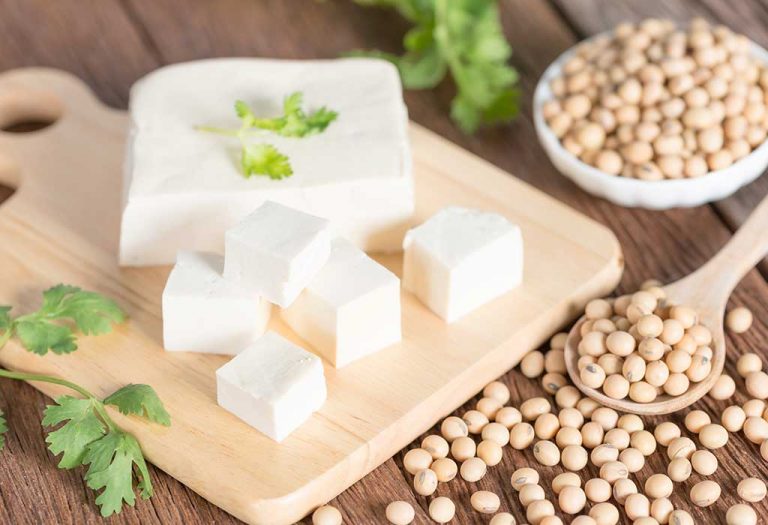Green Tea for Kids – Benefits and Risks

A decade ago, green tea was a relatively unknown beverage, but today it has secured a lasting spot in kitchens across our nation. Recognized for its numerous health advantages, you might be curious if green tea is good for children and if you can add it to their diet. Delving into this query, it is crucial to understand the potential benefits and considerations associated with introducing green tea to a child’s nutrition. From enhancing metabolism to providing antioxidants, green tea offers a range of advantages, yet moderation and age-appropriate consumption should be prioritized to ensure the well-being of the younger demographic. Let’s read on to learn more about green tea for kids.
What Is Green Tea?
Green tea is one of the most consumed beverages in the world and is made from unoxidized (unfermented) leaves found mainly in Japan and China. It’s laden with several antioxidants and heart-healthy nutrients, thus, having a powerful effect on the body, making it one of the healthiest drinks.
Can Children Have Green Tea?
Whether or not green tea can be given to children depends on their reaction to the caffeine content in it. If your child exhibits hyperactivity and wears out too quickly to the brink of exhaustion, then it’s best to not give green tea or any other tea to your child. Other telltale signs of whether green tea is suitable or not for your kids are insomnia, lack of focus, and short attention span. If your child doesn’t show these symptoms after sipping on a little green tea, then you can give it to him.
Benefits of Drinking Green Tea for Children
The following are the benefits of drinking green tea for toddlers and children.
1. Good Oral Health
Children who drink green tea are less likely to experience cavities or any form of tooth decay. ‘Catechins’ contained in green tea fight against cavity-causing bacteria and sulfur compounds which cause bad breath.
2. Fights Against Flu
Green tea has antiviral properties which fight against infections like the flu. But it should be given to kids only in moderation. Do not give more than 1 cup of green tea to your child.
3. Prevents Clogged Arteries
Green tea is highly beneficial for cardiovascular health since it prevents arteries from clogging up, keeping the blood flowing and heart pumping. And the result is regulated blood pressure (1).
4. High in Antioxidants
Antioxidants are known to prevent oxidative stress, fight against free radicals and prevent the formation of cancers and various diseases by boosting immunity. Green tea improves cognitive health and prevents Parkinson’s disease as well.
5. Improves Bone Density
Want your kids to have healthy bones? Science says that regular intake of green tea over a prolonged period has been shown to improve bone density and prevent osteoporosis in later ages.
6. Supports Digestive Health
Green tea can aid in promoting healthy digestion by soothing the digestive tract and potentially reducing the risk of gastrointestinal issues in children. Regular consumption may contribute to a balanced digestive system.
Side Effects of Giving Green Tea to Kids
It’s not all sunshine and rainbows when it comes to giving green tea to kids. Green tea has its share of side effects, particularly for those who are sensitive to caffeine and have an underdeveloped immune system. The following are its side effects:
1. Hyperactivity
Your kid may become hyperactive after drinking green tea. For kids who are sensitive to even the tiniest amount of caffeine, this is what happens. Green tea contains smaller traces of caffeine than coffee and soda drinks, but it is still not recommended. Some kids may even develop allergic reactions after drinking green tea. Hence it is best avoided.
2. Insomnia
Children have developing metabolism and it processes caffeine and sugar too fast. This is also another reason to avoid giving them green tea. Your child may remain awake until the middle of the night after drinking green tea. Therefore, it’s best not given in the first place. Caffeine may also affect a child’s bodily processes.
3. Acidity
Green tea contains caffeine in small amounts, which may cause acidity. This can even lead to issues like stomach pain and even nausea.
4. Anaemia
This is a condition when the blood doesn’t have enough iron. This is because green tea has tannin which reduces the ability of the body to absorb iron from iron-rich sources (2).
5. Vomiting
Taking green tea in excess of 400 mg per day or on an empty stomach may lead to vomiting. Green tea has polyphenols known as tannins which increase stomach acid, which can cause stomach ache, nausea, a burning sensation, or even constipation.
6. High Blood Pressure
If the green tea consumed has high caffeine content, then your blood pressure is likely to spike due to the high-absorption rate of flavonoids.
Tips on Giving Green Tea to Kids
Introducing green tea to children’s diets requires thoughtful consideration to ensure they reap its benefits safely. As a parent, it’s essential to be aware of the appropriate practices when incorporating this beverage into your child’s routine. Here are some valuable tips to guide you through the process.
1. Consult With a Pediatrician
Before introducing green tea to your child, consult with a pediatrician to ensure it aligns with their health and dietary needs. Professional advice can help determine the suitable quantity and frequency.
2. Choose Quality Green Tea
Opt for high-quality, organic green tea to minimize the presence of pesticides and ensure your child receives the maximum nutritional benefits without unnecessary additives.
3. Limit Caffeine Intake
While green tea contains less caffeine than other beverages, it’s crucial to monitor your child’s caffeine intake. Limit the consumption to avoid potential side effects like sleep disturbances.
4. Avoid Sweetened Varieties
Opt for unsweetened green tea to prevent unnecessary sugar intake. If your child finds the taste challenging, consider adding a touch of honey or lemon for a natural, healthier sweetness.
5. Monitor Serving Size
Be mindful of the serving size, as excessive consumption can lead to potential health issues. One cup per day for older children is generally considered safe, but moderation is key.
6. Introduce Gradually
Gradually introduce green tea into your child’s routine to allow their palate to adjust. Starting with small quantities and observing their response ensures a smoother transition.
Green Tea Recommendations for Kids
When selecting green tea for children, it’s crucial to prioritize quality and consider factors like caffeine content and potential additives. Here are some recommendations to guide you in choosing the right green tea options for your child’s well-being.
1. Organic Green Tea Bags
Opt for organic green tea bags, as they are free from pesticides and harmful chemicals. This choice ensures that your child enjoys the health benefits of green tea without unnecessary additives.
2. Decaffeinated Green Tea
Consider decaffeinated green tea options to minimize the intake of caffeine, especially if your child is sensitive to stimulants. This allows them to experience the positive aspects of green tea without the potential drawbacks of excessive caffeine consumption.
3. Flavored Green Tea
To make green tea more appealing to children, explore naturally flavored options. Citrus-infused green teas or those with a hint of fruit can provide a more enjoyable taste for young palates without relying on added sugars.
FAQs
1. At What Age Can Children Start Drinking Green Tea?
The appropriate age for children to start drinking green tea varies. In general, it is advisable to wait until a child is at least 2-3 years old before introducing green tea. However, it’s crucial to consult with a pediatrician for personalized advice based on the child’s health and development.
2. What Tea Is Safe for Kids?
Herbal teas, such as chamomile or peppermint, are generally considered safe for children. These caffeine-free options provide a soothing and mild taste. When it comes to traditional teas, like green tea, it’s recommended to wait until the child is a bit older and to choose decaffeinated or low-caffeine options to ensure their safety and well-being. Always consult with a healthcare professional for guidance on tea consumption based on the child’s individual health needs.
Whether or not you should give green tea to your kids will depend on their age. Think about their age, nutrition, and activity levels before giving green tea to them. You could always try experimenting but it’s always best to ask a paediatrician before you take matters into your own hands especially when their nutrition is concerned. Try and choose green tea without caffeine to negate some of the side effects of green tea. Drinking green tea occasionally won’t hurt and if your kids stay healthy and seem fine (without showing any signs of the reported side effects), then they can keep drinking it.
References/Resources:
1. Green Tea Extract; Stanford Medicine; https://www.stanfordchildrens.org/en/topic/default?id=green-tea-extract-19-GreenTeaExtract
2. Fan. F; Iron deficiency anemia due to excessive green tea drinking (Clinical Case Reports); National Library of Medicine; https://www.ncbi.nlm.nih.gov/pmc/articles/PMC5093162/; November 2016
3. Tea; Harvard T.H. Chan; https://www.livestrong.com/article/13721339-tea-health-benefits/
4. Patrick Van Negri explains benefits of matcha green tea; World.Edu; https://world.edu/patrick-van-negri-explains-benefits-of-matcha-green-tea/
5. Chacko. S, Thambi. P, Kuttan. R, Nishigaki. I; Beneficial effects of green tea: A literature review (Chinese Medicine); National Library of Medicine; https://www.ncbi.nlm.nih.gov/pmc/articles/PMC2855614/; April 2010
6. Caffeine and Kids; Columbia University Irving Medical Center; https://www.cuimc.columbia.edu/news/caffeine-and-kids
7. Healing Through Wholeness; Health Sciences; https://hsc.unm.edu/news/news/healing-through-wholeness.html
Also Read:
Tea and Coffee for Kids
Easy Summer Drinks for Children
Best Healthy Drinks for Kids
Yummy Juice Recipes for Children
Was This Article Helpful?
Parenting is a huge responsibility, for you as a caregiver, but also for us as a parenting content platform. We understand that and take our responsibility of creating credible content seriously. FirstCry Parenting articles are written and published only after extensive research using factually sound references to deliver quality content that is accurate, validated by experts, and completely reliable. To understand how we go about creating content that is credible, read our editorial policy here.















.svg)
















